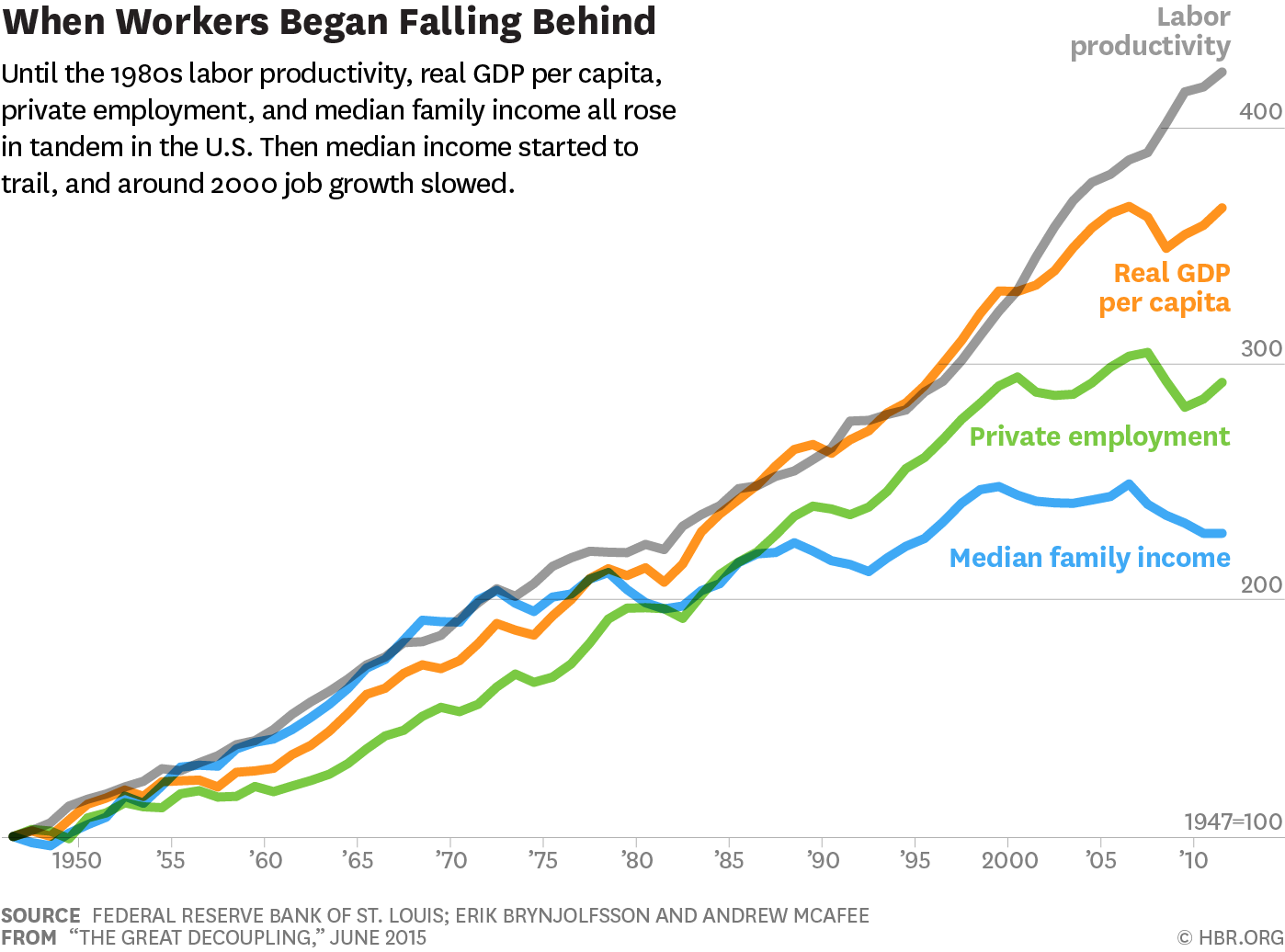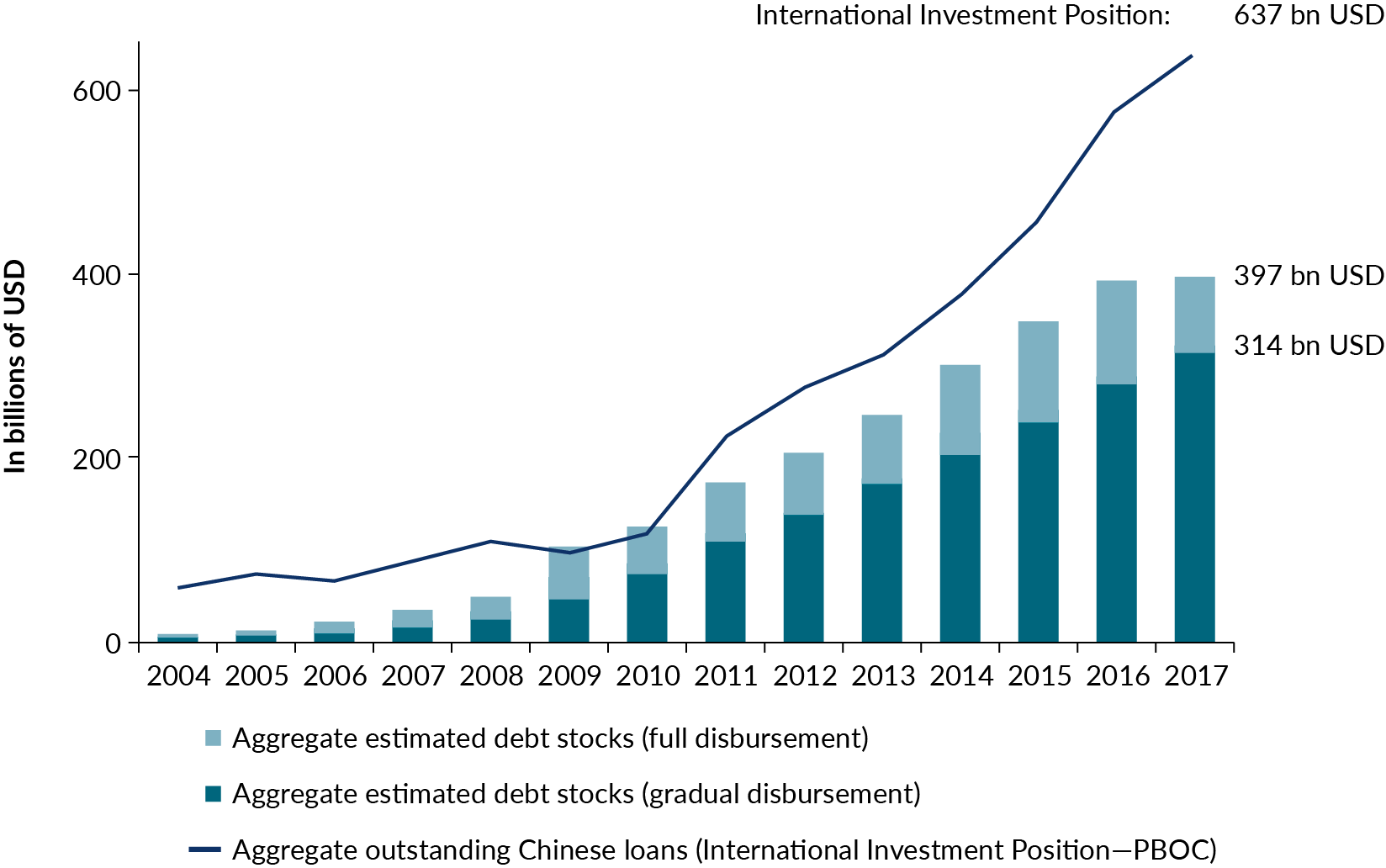How To Prepare For The Great Decoupling: A Strategic Approach

Table of Contents
Understanding the Dynamics of the Great Decoupling
The Great Decoupling is not a sudden event but a gradual process driven by complex geopolitical shifts. Understanding these dynamics is crucial for navigating the changing landscape.
Geopolitical Shifts and Their Economic Consequences
Several key geopolitical factors are accelerating the decoupling. Trade wars, initiated by tariffs and trade restrictions, disrupt established supply chains and create economic instability. Technological rivalry, particularly between the US and China in areas like semiconductors and artificial intelligence, leads to fragmentation of technology supply chains and the emergence of competing technological standards. Ideological differences, including differing views on human rights, democracy, and governance, further exacerbate the divisions.
- Examples: The US-China trade war, impacting global trade in goods like soybeans and electronics. The restrictions on the sale of advanced semiconductor technology to China, forcing China to accelerate its domestic chip development. The growing geopolitical tension between Russia and the West, disrupting energy markets and supply chains.
- Keywords: global fragmentation, economic blocs, supply chain resilience, geopolitical risk
Identifying Key Economic Blocs and Their Characteristics
The decoupling process is leading to the formation of distinct economic blocs, each with its own economic policies and trade agreements.
- Examples: The US and its allies are strengthening economic ties, focusing on supply chain diversification and technological independence. China is leading initiatives like the Belt and Road Initiative, aiming to expand its economic and political influence. The European Union continues to prioritize internal market integration while navigating its relationships with other blocs. Regional trade agreements like the CPTPP and RCEP are also reshaping global trade patterns.
- Keywords: regionalization, bilateral trade agreements, economic integration, trade diversification
Building Resilience in Your Business Strategy
Preparing for the Great Decoupling requires businesses to build resilience into their strategies. This involves adapting to a more fragmented and complex global economy.
Diversifying Supply Chains and Reducing Dependencies
Over-reliance on single suppliers or regions creates significant vulnerabilities in a decoupling world. Diversifying supply chains is crucial for mitigating these risks.
- Strategies: Nearshoring (moving production closer to home), reshoring (bringing production back to the home country), and diversifying sourcing regions to reduce dependence on any single country or bloc. Investing in automation and digitalization to increase efficiency and reduce reliance on specific geographic locations.
- Keywords: supply chain diversification, risk mitigation, nearshoring strategies, reshoring initiatives. Examples: A clothing company diversifying its manufacturing base from a single Asian country to include factories in multiple countries across different regions. A technology firm establishing backup manufacturing facilities in multiple geographies to mitigate supply disruptions.
Adapting to Shifting Market Demands and Regulations
The regulatory environment and consumer preferences will vary significantly across different economic blocs. Businesses need to understand and adapt to these differences.
- Strategies: Conducting thorough market research to understand local preferences and cultural nuances. Ensuring compliance with diverse regulatory frameworks, including data privacy regulations and environmental standards. Adapting marketing and product development strategies to meet the specific needs of different markets.
- Keywords: market adaptability, regulatory compliance, cross-border regulations, international trade law
Investing for a Decoupled World
The Great Decoupling also presents new investment opportunities, but requires careful consideration of geopolitical risks.
Identifying Investment Opportunities in Emerging Markets
The growth of new economic blocs and emerging markets creates attractive investment opportunities. However, it's important to identify high-growth sectors while mitigating risk.
- Examples: Investing in infrastructure projects related to the Belt and Road Initiative. Investing in companies developing advanced technologies within specific economic blocs. Investing in renewable energy projects within regions focusing on sustainable development.
- Keywords: emerging market investments, portfolio diversification, geopolitical investment strategies, risk-adjusted returns
Managing Geopolitical Risks in Your Investment Portfolio
Geopolitical risks are amplified in a decoupling world. Investors need strategies to mitigate these risks.
- Strategies: Diversifying investments across different regions and asset classes to reduce exposure to any single geopolitical event. Using hedging strategies to protect against potential losses due to currency fluctuations or trade wars. Employing scenario planning to prepare for different potential outcomes.
- Keywords: geopolitical risk management, investment risk assessment, portfolio hedging, scenario planning
Conclusion
Preparing for the Great Decoupling requires a multifaceted approach. Understanding the dynamics of the decoupling process, building resilience into your business strategy, and investing strategically in a changing global landscape are critical for success. By proactively adapting to this new economic reality, businesses and investors can navigate the challenges and capitalize on the opportunities presented by this significant global shift. Start preparing for the Great Decoupling today by implementing the strategies outlined above. Consider seeking expert consultation to develop a tailored strategy for navigating the complexities of this evolving global landscape. Further research into specific geopolitical and economic developments will enhance your ability to effectively prepare for and thrive in the new era of the Great Decoupling. Remember, proactive planning and adaptation are key to successfully navigating the Great Decoupling and securing your future success.

Featured Posts
-
 Analyzing Chinas Rate Cuts And Increased Bank Lending In Response To Tariffs
May 08, 2025
Analyzing Chinas Rate Cuts And Increased Bank Lending In Response To Tariffs
May 08, 2025 -
 Investing In Cryptocurrency A Case Study Of Xrp Ripple
May 08, 2025
Investing In Cryptocurrency A Case Study Of Xrp Ripple
May 08, 2025 -
 Trumps Warning Understanding The China Greenland Dynamic
May 08, 2025
Trumps Warning Understanding The China Greenland Dynamic
May 08, 2025 -
 Rogue One Actor Challenges Fan Perception Of Popular Character
May 08, 2025
Rogue One Actor Challenges Fan Perception Of Popular Character
May 08, 2025 -
 Arsenal Vs Psg Champions League Final Hargreaves Prediction
May 08, 2025
Arsenal Vs Psg Champions League Final Hargreaves Prediction
May 08, 2025
Latest Posts
-
 Princess Leias Return 3 Reasons To Expect A Cameo In The Upcoming Star Wars Show
May 08, 2025
Princess Leias Return 3 Reasons To Expect A Cameo In The Upcoming Star Wars Show
May 08, 2025 -
 Andor Season One Stream Episodes Now On Hulu And You Tube
May 08, 2025
Andor Season One Stream Episodes Now On Hulu And You Tube
May 08, 2025 -
 3 Reasons A Princess Leia Cameo In The New Star Wars Show Is Likely
May 08, 2025
3 Reasons A Princess Leia Cameo In The New Star Wars Show Is Likely
May 08, 2025 -
 Revisiting Yavin 4 A Star Wars Perspective From A George Lucas Protege
May 08, 2025
Revisiting Yavin 4 A Star Wars Perspective From A George Lucas Protege
May 08, 2025 -
 Watch 3 Free Star Wars Andor Episodes On You Tube
May 08, 2025
Watch 3 Free Star Wars Andor Episodes On You Tube
May 08, 2025
